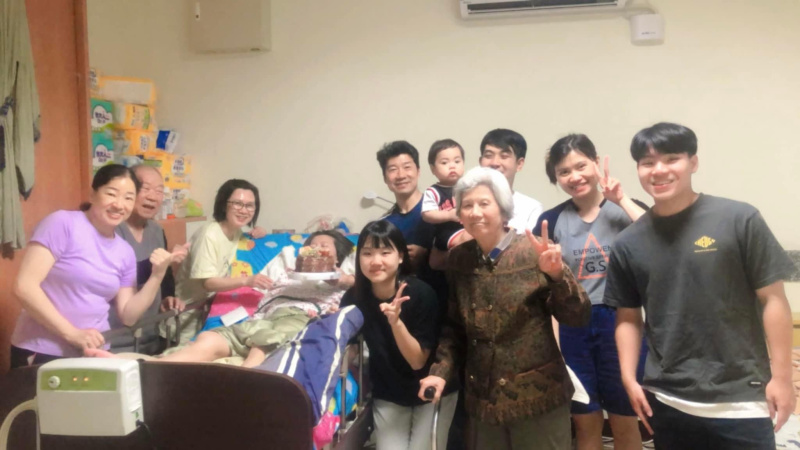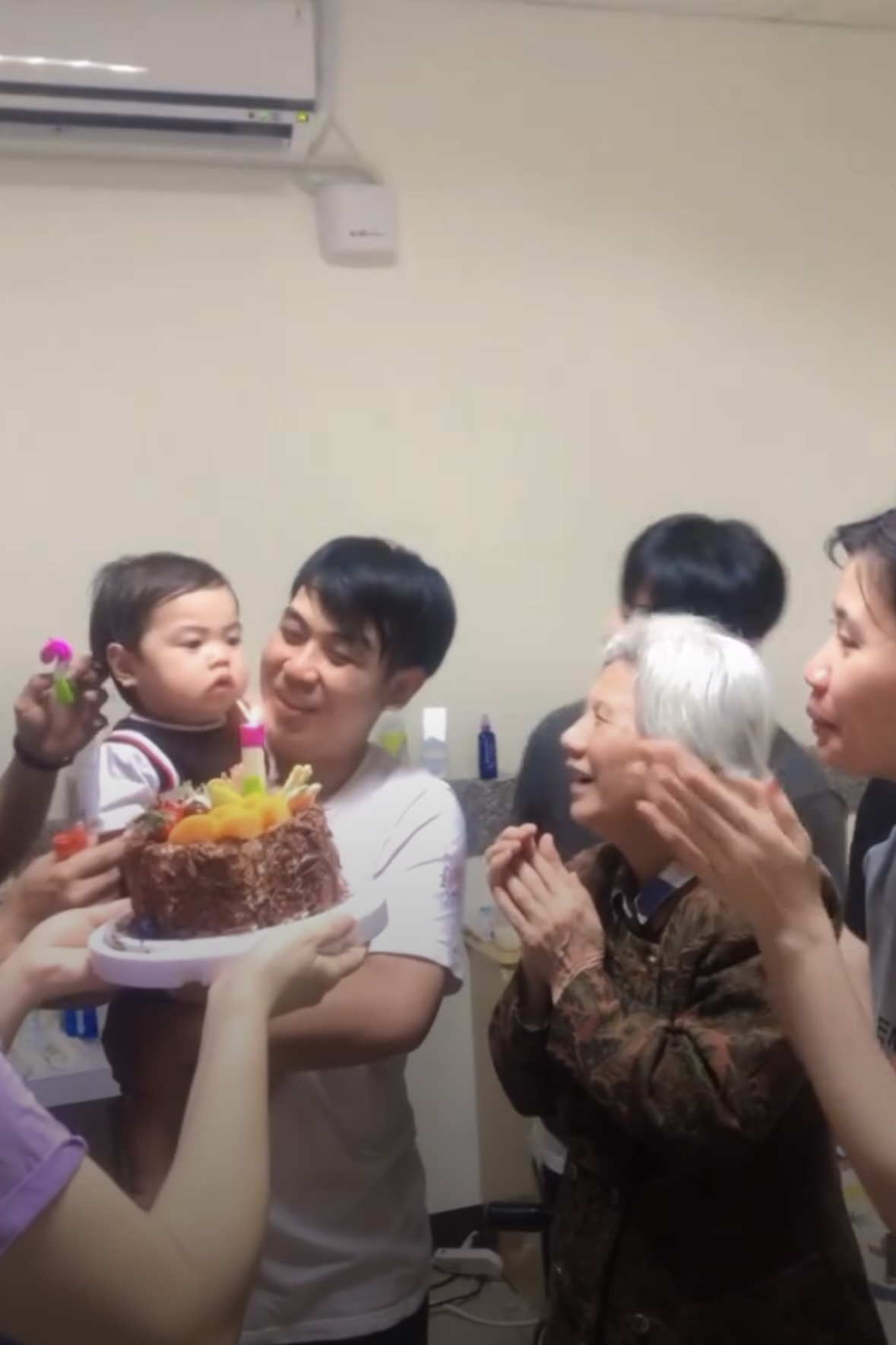
"Uncle treats my child like his own grandkid, even lets me take a break and bring my kid to their house to play with their whole family. I'm really lucky," said Rainie. Rainie's "uncle" is her new employer since she returned to work after childbirth, and the person she's caring for is the employer's wife — "auntie," who suffered a stroke last year.
When "auntie" suddenly collapsed last year, the family was in chaos. Three months later, the employer, through a non-profit intermediary, inquired about hiring a foreign caregiver. Through our matching service, Rainie became their new helper.
Rainie has experience caring for children with rare illnesses and knows how to care for bedridden patients. She's patient and can handle the pressure of long-term hospitalization and rehabilitation. With Rainie's care, "auntie" can now move her eyes and respond to pain.
Rainie's current caregiving schedule involves 28 days of hospital rehabilitation and 20 days of home rehabilitation. The rehabilitation process for stroke patients involves many tasks like bathing, dealing with excrement, and feeding through a nasal tube. But Rainie says her employer respects her expertise in daily caregiving for "auntie" and never micromanages, making her feel that her ten years of nursing experience in Taiwan are valued in this job.
Seeing "auntie" improve under Rainie's care, the employer's family is very grateful to her. Learning that Rainie once gave birth in a shelter, they encourage her to bring her child from daycare to their home during breaks, saving her the expense of renting a hotel for childcare on weekends. Last week, Rainie's child turned one, and the employer's family even bought a cake to celebrate.

Rainie says, "Uncle is like a father to me. He's friendly to my husband and child, and even helps me pick up and drop off my child at daycare when I'm off. They fully support anything I need help with or agree to." Although Rainie didn't expect this level of kindness, she's deeply grateful.
Pregnant migrant workers in Taiwan often face many doubts, thinking their emotional relationships are messy and their children have no legal status. But in fact, most migrant worker husbands work in Taiwan, and they responsibly take care of their children after childbirth. They don't become undocumented babies or loopholes in child welfare. Every migrant worker's baby is their parents' pride and joy.
The existence of shelters not only provides a safe environment for pregnant migrant workers but also helps them return to the workforce. They can leverage their years of professional caregiving experience to help more disabled families in Taiwan, saving many employers from the hassle of hiring and training new caregivers. Let's continue to be a support system for migrant mothers, helping them reintegrate into Taiwan's caregiving sector after childbirth.
